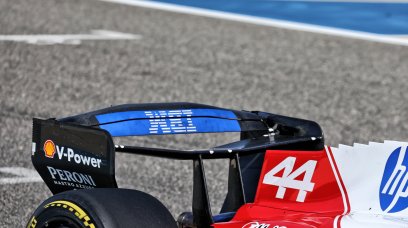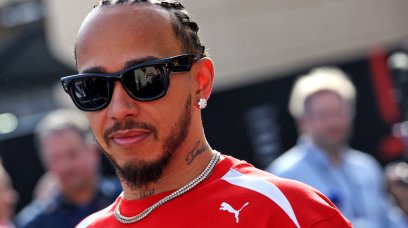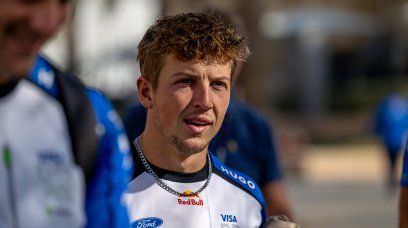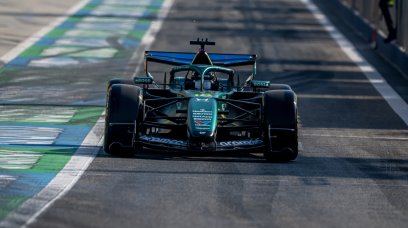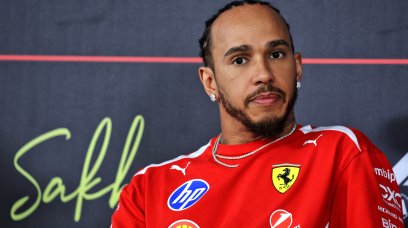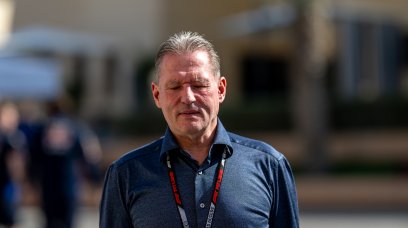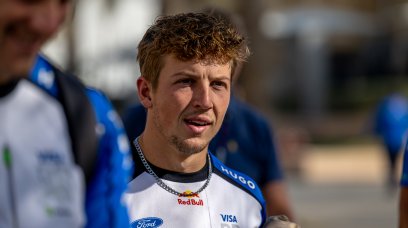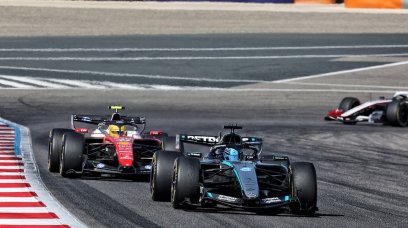Back in 1991, Eddie Jordan, who had signed a rookie called Michael Schumacher for his eponymous team, lost the services of the future record-setting champion to Benetton after just one race. When the crestfallen Irishman entered the Monza paddock after being outwitted by the Italian clothing giant's lawyers (and then-F1 tsar Bernie Ecclestone, who later acquired the sport's commercial rights for 113 years for his family in a $300 million deal massaged by his mate Max Mosley's FIA administration), McLaren boss Ron Dennis greeted Jordan, then in his first season in Formula 1, with the words: "Welcome to the Piranha Club…" Until the late 2000s, the F1 paddock was a festering political pit populated by such as Ecclestone, Max Mosley, Ferrari's Luca di Montezemolo, McLaren's Ron Dennis, Sir Frank Williams and Benetton's Flavio Briatore - alpha males all. It was a place where an enemy's enemy became a friend, provided mutual interests outweighed the original fall-out; an environment where deceit prevailed and honest men were considered weak. 'Divide and rule' was Ecclestone’s byword, and "First get on, then get rich, then get honest", said to be his favourite quip. There were, of course, exceptions to all the above, but these were few and far between.
When F1 politics reached its peak
Peak F1 politics was reached in mid-2009, when the teams threatened to break away unless Mosley stepped down. In his place came one of their number – former Ferrari boss Jean Todt, who had risen above the Italian outfit's politics and delivered a record-breaking run of titles. The Frenchman deftly manoeuvred between Ecclestone and teams, cajoling here and stamping out fires there. Todt could because he'd been one of them. True, the Ecclestone-Todt dynamic had its moments, but each intimately understood the business and there was mutual respect, having respectively led Brabham and Ferrari to multiple World Championships. Todt had been signatory to various of F1's covenants and they had sat on the F1 Commission and FIA World Motorsport Council together, Todt as teams' representative and Ecclestone as commercial head honcho. It was under Todt's watch that F1's 100-year commercial rights changed hands from venture fund CVC Capital Partners to Liberty Media (trading as F1) for an enterprise value of $8 billion - 26 times the sum Bernie had paid just 17 years earlier - and, during the process, Todt not only managed to secure a slice for the FIA but forged as close a relationship with Liberty executives as Mosley and Ecclestone had previously enjoyed.
Todt joined by former Ferrari colleagues
No surprise, either, about the relationship between Todt and Liberty: Many key F1 personnel worked with (or for) him at Ferrari, including F1 Managing Director Ross Brawn, who had been Ferrari's Technical Director under Todt, former F1 Head of Communications Luca Colajanni had served in the same role back in the day, and Stefano Domenicali, formerly Ferrari Sporting Director, was appointed F1 CEO in January 2021. The list continues: Roberto Dalla, Managing Director of F1's Media and [TV] Technology Centre, had served Todt as Ferrari's Head of Electronics. Was this coincidental? Consider that during the Mosley-Ecclestone era, folk had joined F1 from the Brabham team that the latter had owned, or joined the FIA, as was the case with Charlie Whiting and Michael 'Herbie' Blash. Thus, there had long been a cosy relationship between FIA and F1. In recent times, the FIA and F1 generally voted as a block, and when there were hiccups Todt chose consensus over controversy, so even the biggest scandals - think secret Ferrari engine deal and 2021 Abu Dhabi finale - were downplayed or kept under wraps. To this day the former is bound by court order, while the latter was downplayed until the FIA launched an enquiry into the affair.
A change at the top
Todt left office on 17 December, having served the FIA's maximum of three terms, and that was the day the balance shifted: Multiple Middle East Rally Champion Mohammed Ben Sulayem replaced him, with 2001 World Champion co-driver Robert Reid slotting in as Deputy President for Sport. Senate President is Carmelo Sant de Barros, who has a mobility background and lists his interests as sailing, padel, golf, running and skiing. Then, of the 23 current WMSC (World Motor Sport Council) members ,17 are newcomers – with, ironically, Ecclestone's wife Fabiana included in this tally - so not only does the top trio effectively have no hands-on F1 experience, but world motorsport's top legislative body lacks strength in depth. There are no doubts that they will learn quickly, but in the interim a number of left-field decisions have trickled down. Unlike football's governing body, FIFA, the FIA is not charged with regulating a single global sport, being responsible for all things four-wheeled, whether F1, rally, sports and touring cars or tourism, mobility and road safety. Thus, its orbit does not revolve around F1 – which points to a disconnect between the (commercial) objectives of Liberty Media and manifesto of the current FIA administration, when there is little or no F1 expertise in the WMSC.
The complex relationship between Liberty and the FIA
At the of best of times, the relationship between the FIA and Liberty is as complex as it is protracted: The FIA owns the F1 World Championship and leased the commercial rights (only) to a third party, initially the Ecclestone family trust, who sold it to a TV company that went bust, owing various banks hundreds of millions. To recover their money, they sold control to CVC, who sold the rights to Liberty in 2017. In the interim, the sport of F1 grew into a $2bn business - with Liberty aiming even higher - but, crucially, it is still regulated and administered by the FIA. On the flipside, the FIA is a non-profit organisation with annual revenues of $220m and a projected deficit of $25m this year - while its prime property, namely F1, nets more than the governing body turns over from all its different revenue streams, including member fees. The problem is that of the $2bn, the FIA sees very little, being remunerated only to administer and regulate the championship. The original fee was donated to the (ringfenced) FIA Foundation by Mosley, so the current administration has no access to those funds for operational purposes. The imbalance is likely to continue for the next 90 years, being the balance of the 113-year contract struck by Ecclestone and Mosley. On one hand, Ben Sulayem was elected to foster the interests of the FIA's 244 member clubs - spread across 146 counties – while balancing the books of this French-based NPO; on the other, Domenicali was appointed to maximise profits for Liberty Media, a NASDAQ listed entity (FWONK).
Why the recent fall-out is significant
Saliently, the only common denominator between both entities is a legally binding contract neither had a hand in crafting - indeed, it is doubtful whether Ben Sulayem had heard of Liberty in 1998, or whether Liberty's top man John Malone knew F1 existed when Mosley and Ecclestone put pen to paper - yet the covenant commits both parties beyond the end of this century. Any wonder there is conflict after just four months? Although there had been backroom bickering since 17 December, matters came to a head during Tuesday's F1 Commission meet when the FIA refused to agree to a doubling of F1 Sprint races from the current three to six in 2023, on the basis that the governing body needed to examine the impact on its resources. This was not unreasonable given the FIA's $25m hole, but was immediately perceived as 'greed' by the opposite faction. The fall-out is significant, given that for the first time since Liberty gained the keys the sport, the FIA and F1 did not vote as a block; more significant, though, is that after months of haggling over cash for Sprint races, all teams sided with Liberty, only for the FIA to then block the matter. The FIA may well U-turn eventually, whether by way of a sweetener or not, but either way the shock waves were felt from London to Paris. While it is too early for Liberty to consider a breakaway from the FIA – in terms of EU law, the governing body would be forced to approve the series provided FIA safety standards are adhered to and the F1 trademark is not used – but the thought has surely crossed a few minds. GP1, anyone?
Most read
